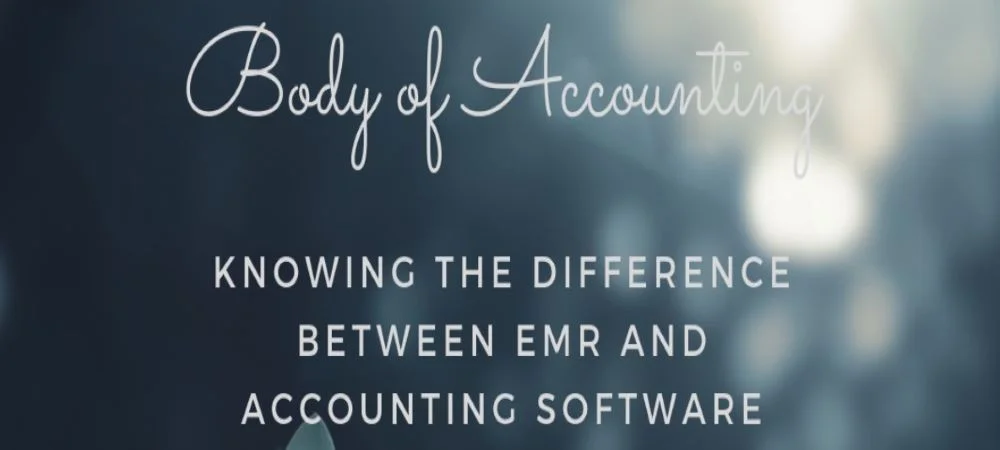Dear Dangerously in Love with Your Finances,
I have a behavioral health practice in Newberg, Oregon, and I could not manage without my practice’s EMR. Recently, a colleague told me that I also needed to have accounting software for my business. That seems redundant. Is it?
~ Questioning Technology Terminology
Hello Questioning Technology Terminology,
This is an issue where the speech pathologists and mental health practitioners I work with frequently get confused. In short, yes, you need to have separate accounting software alongside your practice’s EMR. They are two different pieces of the same financial pie for your business.
Anyone reading this who is in the medical field is very familiar with Electronic Medical Record Software. EMRs are digital versions of paper patient files and as such, must contain strict security protocols due to the sensitivity of information featured and HIPPA laws.
What Your EMR Does
This software brings many benefits to the overall management of your practice. In terms of your finances, it just holds the revenue part of your business. It allows you to send claims to insurance companies. Some systems allow you to run patients’ credit cards for copays and deductibles. Your EMR also enables you to obtain your Explanation of Benefits (EOB).
EMRs do so much and are used for so many critical tasks in patient and practice management for those in the healthcare industry that confusion over their limits is commonplace. It’s software that can do a lot for you, but not everything.
What can’t it do? Your accounting, for one.
What Accounting Software Does for Your Practice
Hopefully, it’s clear by now that your EMR and accounting software are two separate tools. You can’t rely on your practice management software as your accounting software.
Why? Because there is so much more to your practice’s finances. You need your accounting software to help you:
- Capture revenue
- Detail your overhead expenses
- Track information such as assets, liabilities, and equity in your company.
If you’re looking for suggestions on which software will work for your business, this is a great starting point.
Thank you for asking such an important question. Best of luck to you–here’s to your financial health!
